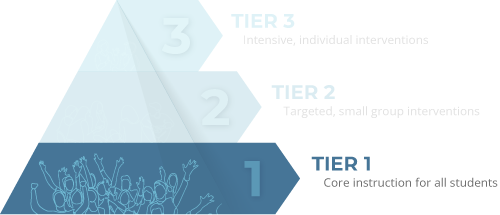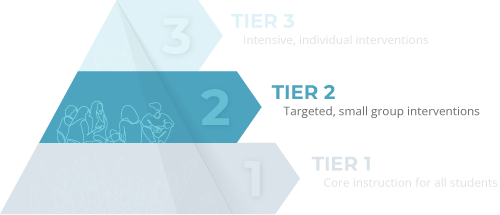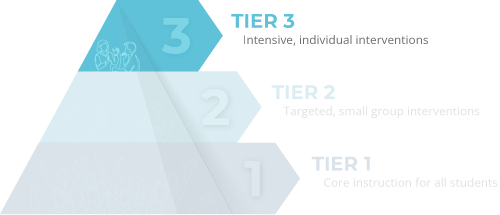Social Emotional Learning
Through a collaborative and tiered approach, School Counsellors provide support, advocacy, intervention, and leadership to create an environment where social and emotional learning (SEL) are fostered and promoted for all learners.
Gaining knowledge of inclusive instructional strategies, particularly in personalization of learning, to increase student engagement by supporting development of self-awareness, self-management, social-awareness, relationship skills, and responsible decision-making skills, School Counsellors apply the SAIL model to social and emotional learning as instructional leaders recognizing all adults are SEL influencers.
Education Support Services teachers and/or School Counsellors promote development of SEL competencies for all, by designing, implementing, assessing, and enhancing via the School Counsellor Framework.
SEL influencer
An individual who has a positive impact on learners through activities, discussions, and feedback, contributing to the development of social and emotional learning skills.
Social and Emotional Learning Big Ideas
- The CASEL five core competencies are self-management, self-awareness, social awareness, relationship skills and responsible decision-making.
- All learning is relational; SEL creates the conditions for learning.
- SEL requires both explicit and implicit teaching.
- Inclusive and equitable SEL planning requires School Counsellors to be culturally competent.

SAIL: RESPONSE TO INTERVENTION (RTI) IMPLEMENTATION
Tier 1
School Counsellors share proactive and universal, classroom/school wide instructional practices and strategies that promote social and emotion learning development for all learners.
School Counsellors work collaboratively with all SEL influencers in the school community to support and advocate for social and emotional development. The school community includes students, families, classroom teachers, Behaviour Intervention Mentors, Educational Assistants, Educational Support Teachers – Resource, Child and Youth teams, administrators, and other stakeholders.
Tier 1 supports
In collaboration with school administration develop a plan, using UDL, to ensure every learner is actively engaged in career connected learning.
- Collecting and review data to inform best practices and strategies needed.
- Providing school-wide professional learning on the best instructional practices and strategies to support the development of SEL competencies.
- School Counsellor playing an active role in promoting school-wide Positive Behaviour Intervention Supports (PBIS).

Tier 2
School Counsellors support and/or provide targeted interventions to promote social and emotional learning competency development where evidence is demonstrated that additional supports are required beyond Tier 1.
Tier 2 supports may include…
- School-based small group sessions focused on SEL competency development.
- Meeting needs collaboratively with outside agencies.
- Involved in transition plans (newcomers, grade level or school change, life after school planning, etc.).
- Collaboration with teacher/PLCs, analyzing data, and creation of targeted group work.
- Supporting the development and implementation of PLPs.
- Delivery and creation of skill building and/or targeted areas through class-based lessons.
- Collaborating with student and teacher on learner profile to develop SEL competencies.

Tier 3
School Counsellors support and/or provide targeted interventions to promote social and emotional learning competency development where evidence is demonstrated that additional supports are required beyond Tier 2.
Tier 3 supports may include…
- Individual counselling sessions to help build skills and fill gaps with respect to social and emotional competencies.
- Connection with community agencies and supports.

